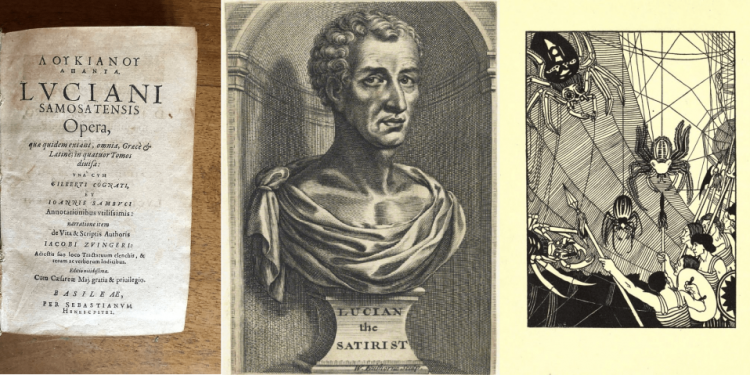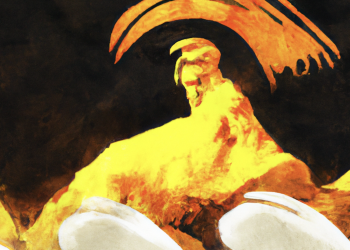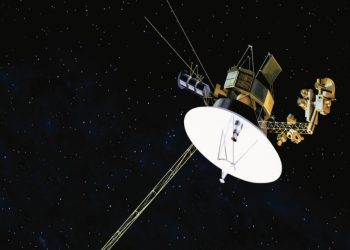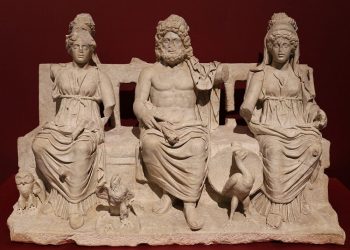Lucian of Samosata scoffed at all areas of life and thought. Therefore, there has always been a temptation to interpret Lucian as an unscrupulous mocker, depriving him of all positive beliefs and statements.
At the other extreme, Lucian was imposed on a deep philosophy, a principled attitude to social issues, and the protection of the rights of the poor, including even slaves. These two extreme points of view cannot be carried out in any way if one takes seriously the literary legacy of Lucian.
It is safe to say that he is one of the most interesting writers of the ancient world and his artistic style remains unparalleled. He is even considered the father of science fiction because of certain fascinating works that described travels in space and battles. Here are 10 things you should know about him.
Who was Lucian of Samosata?
1. Lucian was born in the city of Samosata, that is, he was a Syrian by birth. His exact dates of birth and death are unknown but historians have generally accepted 125-180BC.
2. His biography is almost unknown, and what little is known is drawn from vague indications in his own works. He did not follow the path of his craftsman father and his sculptor uncle but began to strive for a liberal arts education.
3. Having moved to Greece, he perfectly studied the Greek language and became an itinerant rhetorician, reading his own works in front of the general public in different cities of the empire.
4. At one time, Lucian of Samosata lived in Athens and was a teacher of rhetoric, and in old age, he took up a highly paid position as a judicial officer in Egypt, to which he was appointed by the emperor himself.
5. Lucian’s work, which has not come down to us in the originals, is extensive and includes philosophical dialogues, satires, biographies, and novels of adventure and travel (often frankly parody) related to the prehistory of science fiction, in particular, the essay “True Story”, which describes a trip to the moon and Venus.
6. 84 works have come down to us with the name of Lucian, which can be conditionally divided into three periods. Nevertheless, the full accuracy of this periodization cannot be established, in view of the fact that the dating of most of the works is very approximate.
7. The first period of Lucian’s literary work can be called rhetorical. It probably lasted until the end of the 60s. Soon, however, he began to feel disappointment in his rhetoric (this disappointment, as far as one can judge by his own statement, he experienced already at the age of 40) and moved on to philosophical topics, although he was not a professional philosopher.
8. During this second philosophical period of his activity – probably up to the year 80 – Lucian of Samosata dealt with many different topics, of which, first of all, it is necessary to note his numerous satirical works against mythology, which brought him worldwide fame, as well as a number of treatises against philosophers, superstition and fiction.
9. The third period of his activity is characterized by a partial return to rhetoric, an interest in Epicurean philosophy, and pronounced features of disappointment in life and society.
10. Lucian’s murderous and subversive satire made him world-famous. In the depths of merciless satire and the sharpest sarcasm and often an inability to understand the positive and negative aspects of the then society, there is no doubt that Lucian has intense suffering over social plagues and a great desire, although still powerless, to transform life on the basis of reason and humanity.
Join the discussion and participate in awesome giveaways in our mobile Telegram group. Join Curiosmos on Telegram Today. t.me/Curiosmos
Sources:
• Britannica. (n.d.). Lucian.
• Encyclopedia.com. (2021, May 07). Lucian Of Samosata.
• Lebling, R. (n.d.). What’s so funny About Lucian The Syrian?











